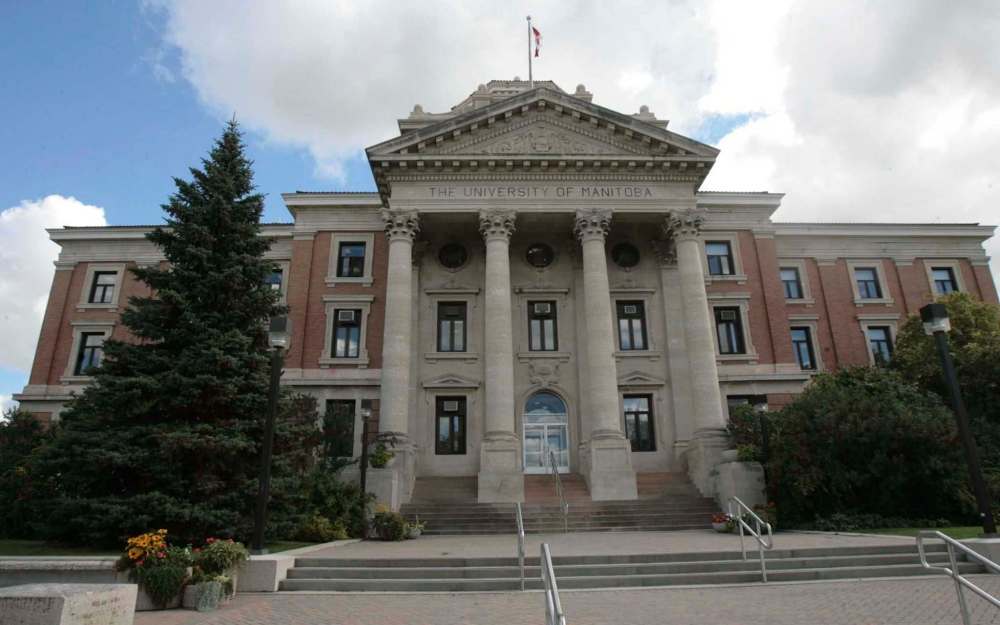Protect the students, not the brand
Advertisement
Read this article for free:
or
Already have an account? Log in here »
To continue reading, please subscribe:
Monthly Digital Subscription
$19 $0 for the first 4 weeks*
- Enjoy unlimited reading on winnipegfreepress.com
- Read the E-Edition, our digital replica newspaper
- Access News Break, our award-winning app
- Play interactive puzzles
*No charge for 4 weeks then billed as $19 every four weeks (new subscribers and qualified returning subscribers only). Cancel anytime.
Read unlimited articles for free today:
or
Already have an account? Log in here »
Hey there, time traveller!
This article was published 20/09/2017 (2401 days ago), so information in it may no longer be current.
Misconduct. Forced leave. Termination. Confidentiality agreement. Standard procedure. Generally accepted practices.
These are the terms that are being bandied about in the wake of Steve Kirby’s departure from the University of Manitoba.
The American-born jazz professor first went on leave early this year while, unbeknownst to the community, the university was following up on a female student’s claim she had been sexually harassed. An internal report revealed investigators believed all the student’s allegations “had merit.” Kirby then retired.

The rumour mill churned, but the details of Kirby’s leave and retirement were, and are, cloaked in secrecy, or, as the U of M would have it, “privacy regulations.”
Couching the response to this issue in the language of the corporate world makes it seem as if the issue is boilerplate workplace harassment. But students are not employees and professors are not bosses or CEOs or managers; the unique relationship between them should not be arbitrated by the kind of human-resources solutions found at companies or offices.
There’s no doubt universities are increasingly corporate entities and at the U of M, Kirby was like a star recruiter, an outgoing charmer who put the school’s jazz program on the map and attracted both donor money and students to the school. But when a university begins to treat people like customers rather than students — some not yet adults, let’s remember — it trades a culture of learning and mentorship for one of risk management and bottom lines.
It’s difficult to look at the way Kirby’s departure was handled as anything other than the university putting the reputation of its brand over the safety of students, both past and future. Given that the retired professor quickly went on to land a job at the prestigious Berklee College of Music (he’s now on leave in light of the circumstances), the U of M’s lack of transparency surrounding the harassment claims has taken on a decided air of negligence.
The situation calls to mind another “workplace” where allegations of sexual harassment and abuse were met with systemic secrecy and coverups: the Roman Catholic Church. Parishoners put their faith in priests and relied on them for guidance in a way that left them utterly vulnerable. Rather than responding to instances where that vulnerability was exploited, the church closed ranks and protected its reputation.
Universities, like churches, should not be allowed to make internal decisions regarding predatory behaviour by a member of the institution and then merely allow that person to shuffle off to a similar institution, while the public remains in the dark and the behaviour is likely to continue.
Confidentiality clauses may be par for the course in the business world, but in the world of education, where young people are putting their futures in the hands of well-respected professors, giving those professors the opportunity to serially abuse their power is unconscionable.
This is more than a personnel issue that requires a human-resources strategy; this is a personal-safety issue that demands a recognition of the human consequences of inaction. The priority should be clear. On the subject of putting its students’ well-being first, the university receives a failing grade.



